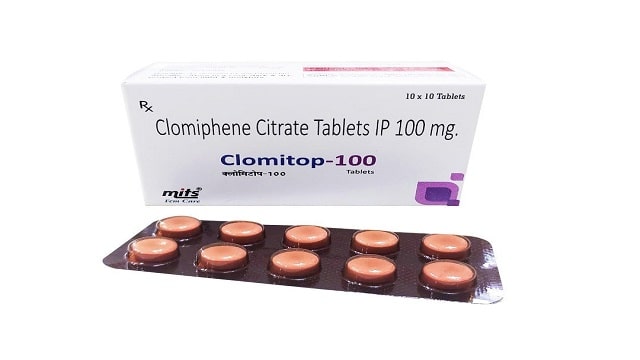Clomiphene Citrate
Clomiphene citrate is a drug used to treat infertility in women due to the release of mature eggs from the ovaries. This drug works by stimulating ovulation by triggering the production of gonadotropin hormones in the brain.
Trade names of the drug: Clomifene Citrate, Profertil, Clomifil, Fervula, Provula, Clovertil, Dipthen, Pinfetil, GP-Fertil, Genoclom, Fertin, and Blesifen.
Clomiphene Citrate 25mg or 50 mg For Women and Men: Click Here
Benefits of Clomiphene citrate
This medication is used to treat infertility in women. It works by stimulating increased levels of hormones that support the growth and release of mature eggs (ovulation).
This medication is not recommended for women whose ovaries no longer produce eggs properly (primary pituitary or ovarian failure).
Dose Clomiphene citrate
The dosage used will be adjusted to the condition of the sufferer. The dosage is 50 milligrams per day and can be consumed for 5 days.
In menstruating women, this drug can be consumed on the 5th day or after the bleeding has stopped. The dose itself can be increased after a month of use, which is 100 milligrams per day.
How to Use Clomiphene citrate
- Follow the doctor’s advice.
- The dosage of the drug is given based on the patient’s condition and response to the drug.
- The medicine is taken before or after meals.
- Do not take this medication for more than 6 menstrual cycles.
- Do not stop using Clomiphene citrate without first consulting your doctor.
- Store at room temperature.
- Keep away from direct sunlight and damp places.
- Keep out of reach of children.
- Do not refrigerate or freeze.
Things to Consider When Using Clomiphene Citrate
Before taking this medicine, you should first discuss your previous medical history with your doctor, especially if you have a number of conditions, such as:
- If you are taking other medications, including vitamins, supplements, and herbal products, be sure to consult your doctor first regarding their use.
- Have experienced vaginal bleeding outside the menstrual cycle.
- Having an ovarian cyst, which is a fluid-filled sac that grows on a woman’s ovaries during menstruation.
- Having endometriosis, a condition where the tissue that forms the inner lining of the uterus grows outside the uterus.
- Having a uterine tumor, which is a benign lump that grows on the uterine wall.
- Having liver disease, which is when the liver organ is disturbed so that it cannot function properly.
- Having an adrenal gland disorder, which is a disorder or damage to the adrenal glands so that the body is unable to produce adequate hormones.
- Having a brain tumor, which is a growth of tissue caused by abnormal cells in the brain or surrounding area.
- High levels of triglyceride fat in the blood.
- Have an allergy to food, medication, or any of the ingredients in clomiphene.
- Do not drive or do activities that require focus and alertness after taking this medication.
- Use of this drug can trigger twin births.
Clomiphene citrate side effects
The side effects of using the drug will depend on the condition of each user. In Clomiphene Citrate users, the side effects that may appear include:
- Nausea and vomiting.
- It hurts.
- Redness and a warm sensation in the face and neck area.
- Endometriosis, a condition in which the tissue that forms the inner lining of the uterus grows outside the uterus. This condition is characterized by abdominal cramps, diarrhea, bloating, nausea, constipation, and fatigue during menstruation.
- Breast pain.
- Experiencing vision problems, such as blurred vision and double vision.
Clomiphene citrate interactions
Clomiphene citrate will cause a number of interactions when taken together with the following types of drugs:
- Concomitant use of clomiphene with ospemifene may increase blood levels of ospemifene.
- The use of clomiphene together with bexarotene can trigger inflammation of the pancreas.
Clomiphene citrate contraindications
The use of Clomiphene citrate may be contraindicated in:
- Hypersensitivity to clomiphene citrate or any component of the formulation.
- Pregnancy.
- Breast-feed.
- History of heart disorder.
- Liver disease.
- Abnormal uterine bleeding.
- Uncontrolled adrenal dysfunction.
- Ovarian cysts not related to PCOS.
- Organic intracranial lesions.
- Uncontrolled thyroid disease.
- Pituitary tumor.
- Risk of hypertriglyceridemia.
- Endometrial cancer.

